* You are viewing the archive for November, 2012
James Brown
November 30, 2012
Calls for Papers, Conferences and Workshops, Events, Projects and Centres
Tags: Book History, Diplomatic History, Gender, Global, History of Scholarship, History of Science, Networks, Religion, Women
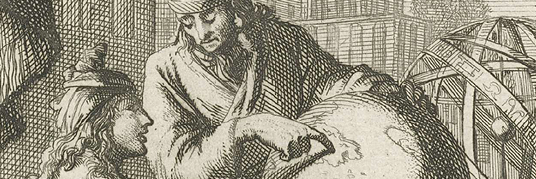 The Centre for Seventeenth-Century Studies at Durham University is seeking papers for a conference on Intellectual Networks in the Long Seventeenth Century (30 June–2 July 2013). The event – which will feature a keynote lecture from our own Howard Hotson – will ‘explore the emergence and consolidation of systems of intellectual and cultural exchange during the long seventeenth century, while assessing their lasting influence on the history of scholarship, literature, diplomacy, science, and religious communities’. Proposals are encouraged on (inter alia) erudite correspondence; academic networks; diplomacy; literary circles; intellectual exchange within religious communities; the book trade; women and intellectual exchange; and popular cultural exchange.
The Centre for Seventeenth-Century Studies at Durham University is seeking papers for a conference on Intellectual Networks in the Long Seventeenth Century (30 June–2 July 2013). The event – which will feature a keynote lecture from our own Howard Hotson – will ‘explore the emergence and consolidation of systems of intellectual and cultural exchange during the long seventeenth century, while assessing their lasting influence on the history of scholarship, literature, diplomacy, science, and religious communities’. Proposals are encouraged on (inter alia) erudite correspondence; academic networks; diplomacy; literary circles; intellectual exchange within religious communities; the book trade; women and intellectual exchange; and popular cultural exchange.
The deadline for proposals for 20-minute papers and full panels is 15 January 2013. For further details and submission instructions, head along to the conference webpage or download the flyer (pdf).
Edited by the Foundations of Modern Thought Research Centre at the University of Bucharest, and featuring our very own Howard Hotson on its Advisory Board, the new publication is billed as a ‘an interdisciplinary, peer-reviewed journal of intellectual history, dedicated to the exploration of the interactions between philosophy, science, and religion in Early Modern Europe’. The epistolary opener features seven contributions (as well as related review essays and book reviews) on particular correspondents and correspondence networks, including an article by Noel Golvers on Sino-European exchanges in the seventeenth and eighteenth centuries; Noel initiated our seminar series in 2010 with a wonderful paper on this topic (listen to the podcast). For full details and to order your copy, visit the journal webpage.
James Brown
November 26, 2012
Conferences and Workshops, Events, Project Updates, Projects and Centres, Videos, Websites and Databases
Tags: AHRC, Databases, Digitization, Union Catalogue, Visualization
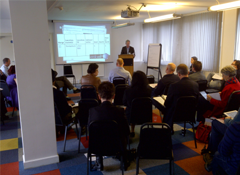
Howard mid-‘yack’
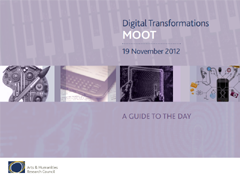
Visit event website
An outing to London last Monday when we presented Early Modern Letters Online at the Digital Transformations Moot, curated and funded by the AHRC. The day long event brought together digital humanists with thinkers and practitioners from other disciplines and sectors ‘to explore the possibilities of the Digital Transformations theme for new and exciting ways of working: to hack, to make, to break’.
The Moot did a great job of showcasing the very wide range of work (and attendant debates) currently being done at the intersection of the humanities and the technical, and in particular in highlighting and fostering new kinds of connections between digital technologies, arts and the humanities, and the creative and cultural industries (the latter being much more strongly represented than is usual at DH gatherings). It was also really interesting from the perspective of event design. Decked out in bracing, challenging terminology – debates were ‘moots’; delegates were ‘mootlings’; papers became ‘yacks’ – the day spread keynote lectures, panel discussions, software demos, and PechaKucha-style talks across multiple tracks and spaces in a kind of freeform digital smörgåsbord that rewarded curiosity and encouraged the creation of individual narratives and serendipitous connections between the sampled components. Further details on the Moot webpage, while the Twitter hashtag was #digitrans; videos of the various live streams will be posted the the webpage shortly.
Philip Beeley
November 13, 2012
Front Page, Project Updates, Publications
Tags: Archives, Book History, Electronic Enlightenment, History of Medicine, History of Scholarship, History of Science, John Wallis, John Wilkins, London, Oxford, Ralph Bathurst, Respiration, Robert Boyle, Trinity College
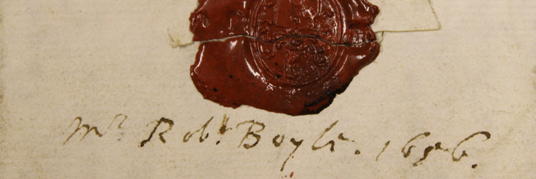
While ferreting around in the archives of Trinity College, Oxford finalizing annotations for Volume IV of The Correspondence of John Wallis, I came across a letter from Robert Boyle, the eminent natural philosopher, to the theologian and physician Ralph Bathurst, whose papers I was exploring. This manuscript was previously missing; while the letter is included in the monumental 2001 edition of Boyle’s complete correspondence (and can be consulted in Electronic Enlightenment), the editors had to base their text on a version of the letter in a 1761 print edition of Bathurst’s papers, rather than on this autograph original. Here’s the letter:
Trinity College Oxford Archive, Fellows 2/1/1: A new Boyle original. Images reproduced courtesy of Trinity College.
The missive – described by Boyle as a ‘hasty blotted scribble’ – is an intriguing one, shedding fascinating light on a failed publishing project. It was sent in April 1656, one of those Oxford months when lots of things were happening (even Henry Oldenburg was in town, inter alia, to sample the rich scientific culture developing in and around the university). Unfortunately for Oldenburg, two giants of the local philosophical scene were absent when he arrived. His friend Robert Boyle, who had moved to Oxford around the beginning of the year (and would stay on and off until 1668) had gone to London. Likewise in the metropolis was John Wilkins, the warden of Wadham College, who had gathered around him an illustrious circle of like-minded practitioners, including Seth Ward, Thomas Willis, and Wallis.
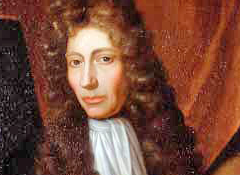
Sender Robert Boyle
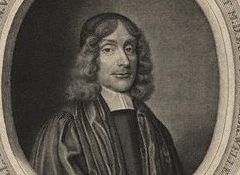
Recipient Ralph Bathurst
One of Boyle’s main tasks while in London was evidently to see through the press a promising book by Ralph Bathurst, one of the members of this glittering cadre of experimentalists. A fellow of Trinity College, who would go on to be College president and later vice-chancellor of the University, Bathurst had written three lectures on respiration as part of his examination as doctor medicinae in 1654; during the following two years, these texts were circulated scribally among the Wilkins circle, which evidently suggested revisions and emendations. Bathurst added numerous marginal notes to the manuscript of the Praescriptiones tres de respiratione and – notoriously reluctant to publish his work – was probably encouraged to do so by his celebrated friends. Boyle headed to the capital with the manuscript to spearhead the enterprise.
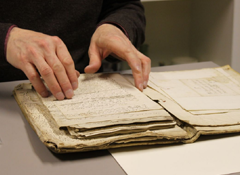
Bathurst’s letter book
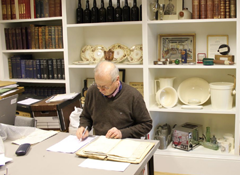
Objects and Letter-Objects
In the absence of Boyle and Wilkins (the two men who had promoted the venture most strongly), however, Bathurst began to get cold feet. Probably around the end of March, in a letter that is now lost he wrote to Boyle in London to inform him of his change of heart and to request that the manuscript be returned. Boyle did not receive the letter immediately, for he had been invited by Wilkins to inspect some peculiar natural phenomena elsewhere. Writing back to Bathurst in the April letter, Boyle expressed his disappointment at the ‘unwelcome orders you send me, concerning your excellent Lectures’, which presumably placed him in an awkward position. Indeed, Wilkins was evidently hoping to get plans back on track, and instructed Boyle not to follow Bathurst’s wish ‘to have those Jewells sent backe to Oxford’.
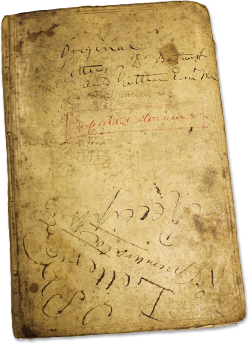 The efforts of Wilkins and Boyle to save the book were to no avail; Bathurst’s Praescriptiones tres de respiratione first saw light of day when it was published posthumously – alongside this letter – in Warton’s The Life and Literary Remains of Ralph Bathurst (London, 1761). The collapse of the project to publish Bathurst’s Praescriptiones illustrates the close relations between knowledge-makers in Oxford and London at this time. The incident even came to the attention of Samuel Hartlib, who recorded in his Ephemerides ‘Mr Boyle knows one that hath an excellent Ms. De Respiratione which hee will not publish’.
The efforts of Wilkins and Boyle to save the book were to no avail; Bathurst’s Praescriptiones tres de respiratione first saw light of day when it was published posthumously – alongside this letter – in Warton’s The Life and Literary Remains of Ralph Bathurst (London, 1761). The collapse of the project to publish Bathurst’s Praescriptiones illustrates the close relations between knowledge-makers in Oxford and London at this time. The incident even came to the attention of Samuel Hartlib, who recorded in his Ephemerides ‘Mr Boyle knows one that hath an excellent Ms. De Respiratione which hee will not publish’.
We are extremely grateful to Professor Michael Hunter for confirming the originality of this manuscript and for additional help and advice on its background.
 The Centre for Seventeenth-Century Studies at Durham University is seeking papers for a conference on Intellectual Networks in the Long Seventeenth Century (30 June–2 July 2013). The event – which will feature a keynote lecture from our own Howard Hotson – will ‘explore the emergence and consolidation of systems of intellectual and cultural exchange during the long seventeenth century, while assessing their lasting influence on the history of scholarship, literature, diplomacy, science, and religious communities’. Proposals are encouraged on (inter alia) erudite correspondence; academic networks; diplomacy; literary circles; intellectual exchange within religious communities; the book trade; women and intellectual exchange; and popular cultural exchange.
The Centre for Seventeenth-Century Studies at Durham University is seeking papers for a conference on Intellectual Networks in the Long Seventeenth Century (30 June–2 July 2013). The event – which will feature a keynote lecture from our own Howard Hotson – will ‘explore the emergence and consolidation of systems of intellectual and cultural exchange during the long seventeenth century, while assessing their lasting influence on the history of scholarship, literature, diplomacy, science, and religious communities’. Proposals are encouraged on (inter alia) erudite correspondence; academic networks; diplomacy; literary circles; intellectual exchange within religious communities; the book trade; women and intellectual exchange; and popular cultural exchange.
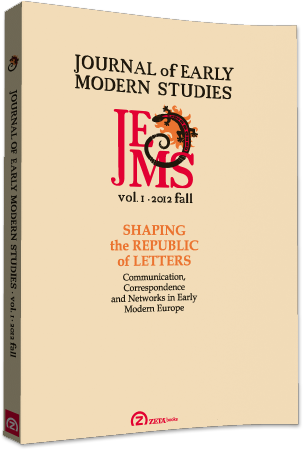



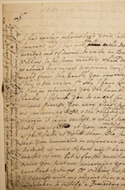
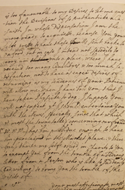
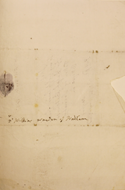
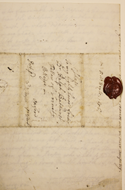




 The efforts of Wilkins and Boyle to save the book were to no avail; Bathurst’s Praescriptiones tres de respiratione first saw light of day when it was published posthumously – alongside this letter – in Warton’s
The efforts of Wilkins and Boyle to save the book were to no avail; Bathurst’s Praescriptiones tres de respiratione first saw light of day when it was published posthumously – alongside this letter – in Warton’s 
 Join
Join 